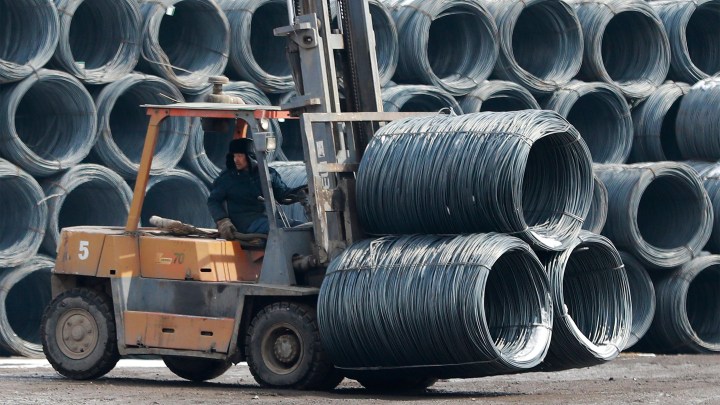
My Economy: Dealing with trade uncertainty

My Economy tells the story of the new economic normal through the eyes of people trying to make it, because we know the only numbers that really matter are the ones in your economy.
It’s been a mixed year for Todd Adams, president of stainless steel manufacturing company Sanitube. Ever since the U.S. levied steel tariffs on a number of Chinese imports last year, Adams had his application for tariff exemption rejected, saw costs go up and was then forced to pass those costs on to his customers — all while the U.S. and China have continued to negotiate an end to the tariff crossfire in the last few months. Despite all that, Adams says business has been alright, thanks to the strength of the economy. But Adams hopes that all of the uncertainty that has come out of the current trade situation between the US and China ends soon, no matter the outcome, so he can run his business with one less issue to worry about.
My name’s Todd Adams, president of Sanitube, a manufacturer of stainless steel tube valves and fittings for the food industry. We are headquartered in Lakeland, Florida. We were told that there was a process for an exemption which we did apply for. And unfortunately our exemption request was denied based on technicalities related to the tariff code. We’ve since reapplied, it was kicked back one time. We’re still working on it, but we’re just at the point where we’re debating what resources we really want to devote to this process, that seems to be relatively meaningless.
Our ongoing business has been strong. You know, the economy, as everyone knows, is strong. We pay the tariff and we’ve passed it on to the customer, and it seems that we have not had any pushback, probably based on the strength of the economy and the fact that the material is needed. We’re thankful for that. I can’t say that we’ve shifted any more manufacturing back to the U.S. based on the tariff.
There’s certainly a very deep sense of uncertainty, not only in our company, but throughout the industry. We’ve been a lot more conservative with how much we’ve imported at a time. We don’t know what tomorrow might bring. There could be an announcement, just like there was for the 25% Section 232 tariffs. We’re also very conservative with the quotes that we’re doing for customers. So customers have much less time to make a decision and they have less certainty in their budgeting. We would be happy with a final resolution, whatever it may be. We just want to see an end to the uncertainty, an end to the volatility.
This series only works with your help. Let us know how your economy is doing using this form, and your story may be featured on a future edition of My Economy.
There’s a lot happening in the world. Through it all, Marketplace is here for you.
You rely on Marketplace to break down the world’s events and tell you how it affects you in a fact-based, approachable way. We rely on your financial support to keep making that possible.
Your donation today powers the independent journalism that you rely on. For just $5/month, you can help sustain Marketplace so we can keep reporting on the things that matter to you.


















